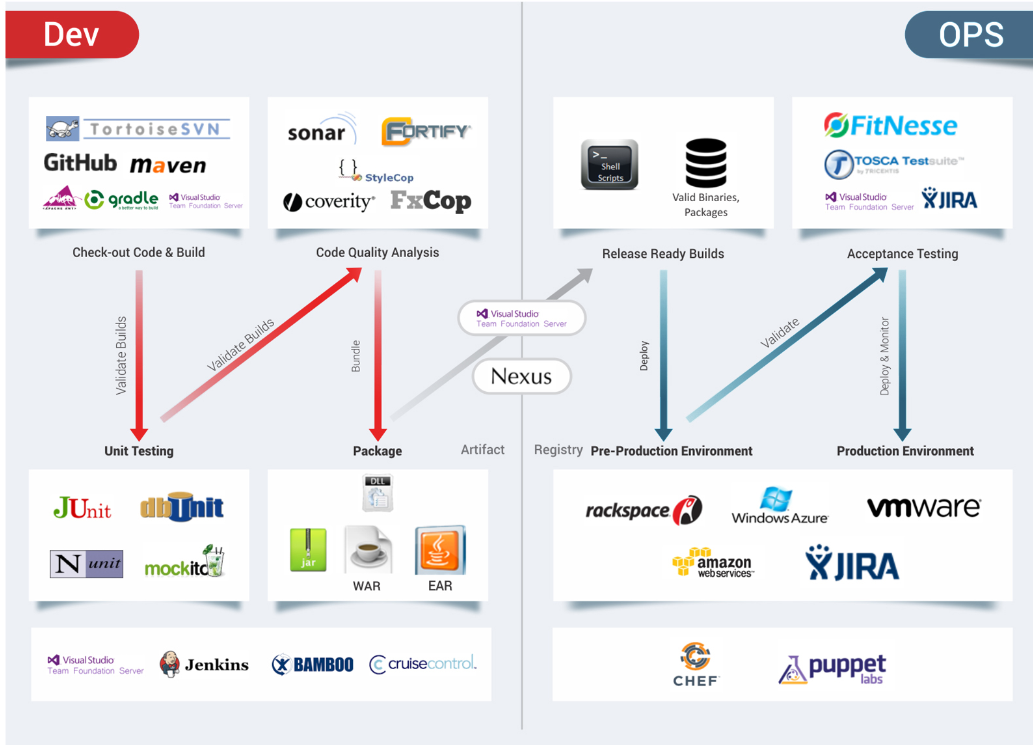DevOps overview
DevOps is a set of practices, principles, and cultural philosophies that aim to streamline and integrate the processes between software development (Dev) and IT operations (Ops). The primary goal of DevOps is to shorten the software development lifecycle, increase the frequency of software releases, and improve the quality and reliability of software applications.
Key Concepts and Principles of DevOps:
-
Collaboration: DevOps emphasizes collaboration and communication between development, operations, and other relevant teams. This reduces silos and enhances the flow of information.
-
Automation: Automation is a core aspect of DevOps. It involves automating repetitive tasks such as building, testing, deployment, and infrastructure provisioning. This increases efficiency, reduces errors, and speeds up the development process.
-
Continuous Integration (CI): CI involves frequently integrating code changes from developers into a shared repository. Automated tests are run to ensure that the changes don't introduce defects. CI aims to catch integration issues early in the development cycle.
-
Continuous Delivery (CD): CD takes CI a step further by automatically deploying code changes to staging or production environments after passing automated tests. This ensures that software is always in a deployable state, making releases smoother and more reliable.
-
Infrastructure as Code (IaC): IaC involves managing and provisioning infrastructure (servers, networks, etc.) using code and automation tools. This ensures consistent and repeatable infrastructure setup, reducing manual configuration and potential errors.
-
Microservices: Microservices architecture involves breaking down an application into smaller, loosely coupled services that can be developed, deployed, and maintained independently. This allows for more flexibility and scalability.
-
Monitoring and Feedback: Continuous monitoring of applications and infrastructure helps identify issues and performance bottlenecks. Feedback loops ensure that developers and operations teams can make improvements based on real-time data.
-
Security: DevOps integrates security practices throughout the software development lifecycle, known as DevSecOps. Security is not an afterthought but an integral part of the development process.
-
Version Control: Version control systems, such as Git, enable teams to manage and track changes to code and other project assets. This facilitates collaboration, rollbacks, and traceability.
-
Agile and Lean Practices: DevOps aligns well with Agile and Lean methodologies by promoting iterative development, customer feedback, and a focus on delivering value quickly.
Benefits of DevOps:
-
Faster Time to Market: DevOps practices enable faster development cycles and quicker deployment of features, leading to faster time-to-market for products.
-
Improved Quality: Automation and continuous testing result in higher-quality code with fewer defects and faster bug identification.
-
Increased Collaboration: DevOps breaks down communication barriers between teams, leading to better collaboration and shared responsibility.
-
Greater Efficiency: Automation reduces manual tasks, which saves time and minimizes human errors.
-
Enhanced Scalability: DevOps practices make it easier to scale applications and infrastructure to meet demand.
-
Continuous Feedback: Regular feedback loops help teams continuously improve their processes and products.
-
Reliability: Automated deployment and monitoring improve the reliability of applications and services.
DevOps has become an essential approach in modern software development, fostering a culture of collaboration, automation, and continuous improvement across development and operations teams.

Enroll Now
- Python Programming
- Machine Learning